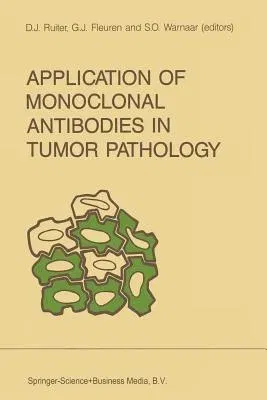The development of monoclonal antibodies to human tumor associated
antigens has greatly facilitated the application of immunohistochemical
techniques to analyze surgically removed tissues. During the last few
years this approach has been utilized by a progressively increasing
number of investigators to analyze malignant cells. Although monoclonal
antibodies to tumor associated antigens have not become yet routine
reagents in immunopathology, they have provided new information which
could not be obtained with conventional antisera or histochemical
procedures. The following are representative examples. TUmor associated
antigens have been identified which display a restricted distribution in
normal tissues and therefore may represent useful markers for radio-
imaging and appropriate targets for immunotherapy. In spite of undetec-
table differences with conventional histopathological approaches hetero-
geneity has been found in the antigenic profile of tumor cells within a
lesion, in autologous lesions removed from different anatomic sites from
a given patient and in lesions removed from different patients.
Phenotypes of tumor cells have been identified which correlate with the
biology of tumor cells and with the clinical course of the disease. From
a practical view point the use of monoclonal antibodies in
immunopathology has enhanced interactions between pathologists and
immunologists, as exemplified by the present book. Such interactions
have contributed to the application of basic research to clinical
problems. The chapter of this book discuss investigations performed with
monoclonal antibodies to antigens expressed by various types of normal
and malignant human cells.


